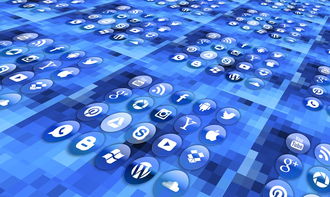As a tech expert, I am often asked to predict the future of technology. While it's impossible to know for certain what the next decade will bring, we can make educated guesses based on current trends and advancements. In this essay, I will explore the potential changes in technology over the next ten years and how they might impact our lives.
Artificial Intelligence and Machine Learning
One of the most significant areas of growth in technology over the past decade has been artificial intelligence (AI) and machine learning (ML). In the next ten years, we can expect these fields to continue to evolve rapidly. AI will become more integrated into our daily lives, with intelligent assistants that can understand and anticipate our needs. These systems will be capable of learning from our behavior and preferences, providing personalized recommendations and automating routine tasks.
Machine learning algorithms will become more sophisticated, enabling them to process vast amounts of data and make complex decisions. This will have profound implications for industries such as healthcare, where AI could assist in diagnosing diseases and developing personalized treatment plans. In finance, AI could help predict market trends and manage investments more effectively.
Quantum Computing
Quantum computing is another area that has the potential to revolutionize technology. While still in its infancy, quantum computers have the potential to solve problems that are currently impossible for classical computers. Over the next decade, we might see the first practical applications of quantum computing, which could lead to breakthroughs in cryptography, drug discovery, and materials science.
The development of quantum-resistant encryption will also be crucial as quantum computers become more powerful. This will ensure that our digital information remains secure even as these new machines become capable of breaking traditional encryption methods.
5G and Beyond
The rollout of 5G networks is already underway, and in the next ten years, we can expect this technology to become ubiquitous. 5G will enable faster data transfer speeds and lower latency, which will be crucial for the development of new technologies such as autonomous vehicles and the Internet of Things (IoT).
Beyond 5G, we might also see the beginnings of 6G technology. While it's still too early to predict the exact capabilities of 6G, it is likely to build on the strengths of 5G, offering even greater speeds and connectivity options.
Augmented and Virtual Reality
Augmented reality (AR) and virtual reality (VR) have made significant strides in recent years, and this trend is likely to continue. In the next decade, we can expect AR and VR to become more immersive and integrated into our daily lives. This could include everything from virtual meetings and training simulations to entertainment experiences that feel like they are happening in real-time.
The development of lightweight, comfortable headsets and haptic feedback technology will make these experiences even more realistic. Additionally, as AR and VR become more accessible, we might see a rise in creative applications, such as virtual art galleries and interactive storytelling.
Sustainable and Green Technologies
With the growing awareness of climate change and the need for sustainable practices, technology will play a crucial role in addressing these challenges. In the next ten years, we can expect to see significant advancements in renewable energy technologies, such as solar and wind power, as well as improvements in energy storage solutions like batteries.
Moreover, there will be a push towards more energy-efficient devices and systems, reducing the overall carbon footprint of technology. This could include more efficient data centers, smart grids that optimize energy use, and devices that are designed to consume less power.
Healthcare Advancements
Healthcare is another area where technology is set to make a significant impact. We can expect to see continued advancements in telemedicine, making healthcare more accessible and convenient. Additionally, the use of AI in diagnostics and treatment planning will become more prevalent, leading to more accurate and personalized care.
Genetic editing technologies, such as CRISPR, will also continue to develop, potentially leading to new treatments for genetic diseases and even the possibility of preventing certain conditions before they occur.
Conclusion
The next ten years promise to be a period of rapid technological change and innovation. From AI and quantum computing to sustainable technologies and healthcare advancements, the impact on our lives will be profound. As a tech expert, I am excited to see how these developments will shape the future and improve the quality of life for people around the world. It is a time of great potential, and with the right investments and policies, we can ensure that technology continues to be a force for good.









